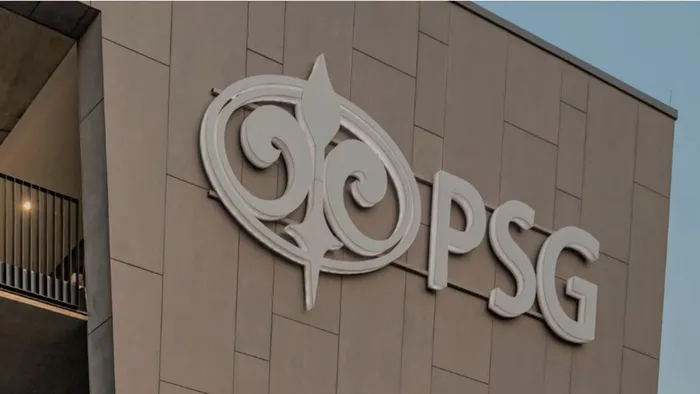PSG Financial Services reports bumper earnings growth amid challenging market conditions
Financial services

PSG Financial Services is a professional financial services group with an extensive national footprint and Namibian presence, and a decade of growing shareholders retuns since it listed on the JSE in 2014.
Image: Supplied
PSG Financial Services’ advice-led and diversified businesses continued to drive earnings growth and competitiveness in a tough financial services market during the six months to August 31, boosted as well by higher equity market returns.
Recurring headline earnings per share for the group that is owned by PSG Group, which was founded by billionaire Jannie Mouton and Chris Otto in 1995, increased by 22%, with an impressive return on equity of 28.6%, up from 26.2% at the same time last year.
The interim dividend was raised to 20 cents a share, considering the strong cash position, compared to 17 cents at the same time last year. CFO Mike Smith said in an interview the group continued its steady trend of growing major financial metrics since listing on the JSE in 2014, a trend that was unbroken even during the Covid pandemic.
“While local and global economic pressures remain challenging, a more favourable securities market positively impacted our results,” said the CEO, Francois Gouws. PSG Financial Services reported a R853.63 million interim profit, up 30.06% over the prior period. Basic attributable earnings per share rose by 28.99% to 62.3 cents per share.
Assets under management (AUM) was up 19% to R517.6 billion. Total assets under administration increased by 21% to R721.3bn. The AUM comprised assets managed by PSG Wealth of R448.9bn, which increased 18% over the period, and PSG Asset Management of R68.7bn, which increased by 21%. Performance fees constituted 7.3% (2024: 6%) of headline earnings.
PSG Insure’s gross written premium amounted to R4bn, 6% higher than at the same time last year. Its 26% increase in recurring headline earnings was boosted by underwriting improvement initiatives, benefits from a more favourable claims environment, and an absence of catastrophic storms. The net underwriting margin of 15.2% is up significantly from 9.1%.
PSG Wealth’s recurring headline earnings increased by 15% to R406.96m. PSG Asset Management’s recurring headline earnings was 25% higher at R197.27m. The group reported over R10bn of positive net flows during the period, a trend that was continuing, said Smith. The group had benefited from “good organic growth” and market share gains throughout the period, he said.
Compared to the prior comparable period, technology and infrastructure spending increased by 15%, while fixed remuneration costs grew by 5%. Investment in staff was boosted by 73 newly qualified graduates who joined during the period, said Smith.
In July, Global Credit Rating Company upgraded PSG Financial Services’ long and short-term credit ratings to AA-(ZA) from A+(ZA) and to A1+(ZA) from A1(ZA), respectively, with a Stable Outlook. This marked the fifth ratings upgrade in the past decade, said Smith.
“These upgrades are a clear endorsement of our financial strength, liquidity, and prudent capital management. They reflect the resilience of our progressive business model,” said Gouws.
“The results underline our disciplined approach to capital allocation, ensuring we balance caution with delivering attractive, risk-adjusted returns for our shareholders,” said Gouws. The dividend policy targets a payout of 40% to 60% of full-year recurring headline earnings.
Gouws said the group believed in the potential of the country and in the importance of well-functioning capital markets as a driver of sustainable growth.
As an example of playing an active role in driving progress, Gouws cites PSG’s Think Big SA competition, run in collaboration with Economic Research South Africa (ERSA), which continues to stimulate debate among South Africans and encourages ideas to unlock economic growth.
The winning paper of this year’s competition, titled "Move, Multiply, Matter: Unlocking the Potential of South Africa’s Capital Market" by Jeanette Safi, was recently announced.
“The competition offers the winner the opportunity to have their paper published by ERSA, as well as contributing to the debate on public policy,” said Gouws.
After a decade of subdued growth, Gouws said there were signs of cautious optimism in the local economy.
Reform momentum was visible even though energy constraints, logistics bottlenecks, and high unemployment continue to weigh heavily. Global uncertainty added to the challenge. The Government of National Unity and growing private-sector collaboration provided a foundation for hope, but bold reforms and effective execution are still required for sustainable progress, he said.
Visit:www.businessreport.co.za